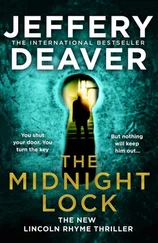“Was she going someplace before work?”
“I don’t know. She played guitar with friends some.”
He asked if she’d talked to the police.
At this she grew silent for a moment. “Not yet. I heard with someone who’s older, the police won’t be interested for a few days.”
They might be interested. But what she was really saying was: mother and daughter were undocumented and the cops might report them to Immigration and Customs Enforcement. That was a big concern he’d found in the immigrant community; while some police departments might not report them, by federal law they were required to.
“Did you have a fight? Did she run off?” The most common cause of missing youngsters.
“Oh, no, no. We are very close. We never fight. She’s the love of my life!”
Parental kidnappings were the most common form of abduction. Even with children above the age of majority, like Tessy, a mother or father might coerce the youngster to come live with him or her. More and more were living at home until later in life nowadays. Vasquez was a widow but the general principle could apply.
“Have you had a partner or someone you’re seeing who might’ve had an interest in her?”
She gave a laugh. “I work twelve-hour days, two shifts. That is the last thing on my mind.”
“So you think someone forced her to come with them.”
She sat forward, her hands shredding the tissue. “Here’s what I’m worried about, sir. Tessy had some drug problems a few years ago. She fought it and won. She goes to meetings. She’s a good girl. But there was this man, older. They dated. Mostly she went out with him because he supplied her. After she got sober, her sponsor told her she couldn’t see him anymore. She broke up with him. He got furious. He stalked her.”
“When?”
“Six months ago.”
“What’s his name?”
“All I know is Roman. I think it’s a nickname.”
“Address?”
Vasquez shook her head.
“Arrests?”
“Probably. I think so.”
“Describe him.”
“He’s about thirty, no, probably more. Not tall, slim. Has a shaved head. Or he did. He’s white but has a darker skin. There’s a tattoo of a cross on his neck. An old-fashioned cross. Like the ancient times.”
Shaw took a few moments to jot these notes. Then he asked, “Where does she work?”
“In a folk music club, in North Beach.”
Shaw got the name.
“Every time I look at those, I want to cry.” She waved at the photographs on the wall.
“She took those? She’s talented.”
A nod. “She studied, art school. And she can sing too. She has a nice voice.”
She looked out the window. Her jaw was tight. “I wasn’t there for her like I should have been. So expensive here... Working two jobs, both Eduardo and me. We weren’t there... She got into trouble.” She touched a finger to a lower lid and examined it — for running mascara. Of which there were some streaks. She grimaced and, taking a compact mirror from her purse, examined the damage and blotted some of the stain away.
Her hands were delicate, her skin smooth. She must have been in her early twenties when the girl was born.
Shaw asked questions he’d developed over the years in cases involving missing young people and jotted down her answers in his distinctive handwriting.
Friends’ names and numbers. There was no find-my-phone app on her mobile. The phone was in her name, so her mother couldn’t have the phone company ping it; only the police could and even then only with a warrant. Tessy had one of her mother’s credit cards, but she hadn’t used it.
“When was your last contact?”
“A phone call. She left a message. I couldn’t pick up.” Her lip trembled. She’d be thinking that maybe it was the last chance she would have had to speak to her daughter.
“Play it.”
She did. They heard a light, cheerful voice chatting briefly and saying she’d call later. She was outdoors, on a noisy street.
Shaw asked, “Can you send it to me?”
She didn’t understand. “Send...?”
He explained, “You can save a voice mail as a WAV file.”
“A wave?”
“ W-A-V . It’s a sound-recording format. You can save it on your phone. Google it. It’s easy to do. Then email the recording to me.” He gave her his address: ColterShawReward@gmail.com.
She said she would.
“I’d like to see her room.”
“She doesn’t have one. She sleeps here — on the pullout.”
“Any personal effects? Papers, computer?”
She waved around the sparsely furnished place. “Most everything of ours is in storage in Mountain View. Where we had the house that was foreclosed.”
“I think I have enough to get started. I’ll need a photo. A better one than you posted online.”
She didn’t have any hard copies but she uploaded one to his phone.
The young woman, with long dark hair, was striking. High cheekbones, broad lips and big eyes, deep brown.
“Has anyone else called about the reward?”
“A couple of people.” Her voice lowered. “They were just assholes. They didn’t know anything. Just making stuff up about her being here or there so they could get the money.”
“That happens. All right. I have other projects going on. But I’ll do what I can.”
She shook his hand warmly. “Thank you, Mr. Shaw.”
“Colter.”
“Thank you. Bless you.” She touched the silver crucifix at her throat. Then said brightly, “It’s more now.”
“More?”
“What I can offer. I looked at the GoFundMe page an hour ago. People’ve contributed another $234. And I’m praying that there’ll be more.”
Shaw said, “Let’s find her first. We’ll worry about that later.”
Never be blunt when subtle will do...
Colter Shaw was adept at guile. He liked outthinking the criminals he was pursuing, liked strategizing against the geography, the elements, the forces that conspired to keep him from finding a missing person.
But sometimes you just had to throw clever to the wind and go for it.
Blunt...
When he stepped out onto the pungent street in front of Maria Vasquez’s apartment he caught a glimpse of the green Honda.
In one sense, there was some subtlety involved, in spotting the car. The driver had not parked directly on Vasquez’s street, but around the corner. As he scanned around him he saw the Honda in a reflection — a newly washed plate-glass window was at the apex of a triangle, which also included Shaw and the green car.
Since there was no direct view of Shaw’s bike from the car, that meant that the driver wasn’t now in the vehicle but was one of dozens of people on the street, lying low and surveilling him. That population included shoppers, folks delivering packages and envelopes and restaurant provisions, shopkeepers hard at work in the never-ending job of scrubbing the sidewalks, some women and men who were probably sex workers, a few pushers hawking their wares, and their consumers, those just standing around, talking to others in person or on cell phones and a few talking exclusively, and with animation, to themselves.
Only one way to find out who.
Shaw made sure his holster was snug and turned in the direction of the cross street walking quickly toward the side street where the green Honda was parked.
He flushed the spy in one second.
Dressed in black jeans and a gray windbreaker, head covered with a black baseball cap, the spy — about two hundred feet from Shaw — turned instantly and ran back toward the car. It began as a fast gait, then a sprint, though he paused briefly to speak to two large workers, in T-shirts, one with a shock of curly red hair, the other with a black, unwashed ponytail. Colleagues? Shaw didn’t see how. They were unloading supplies from a battered cab truck, double-parked at the intersection around the corner of which sat the green Honda.
Читать дальше
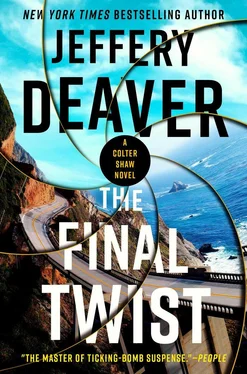
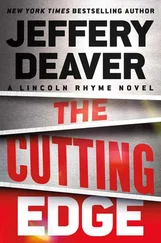



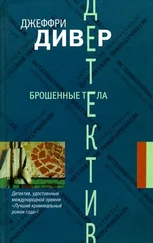

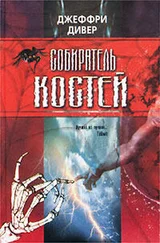
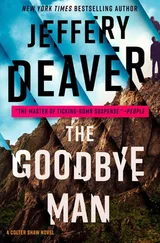
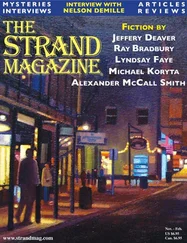
![Джеффри Дивер - Where the Evidence Lies [A Lincoln Rhyme Short Story]](/books/403782/dzheffri-diver-where-the-evidence-lies-a-lincoln-r-thumb.webp)

